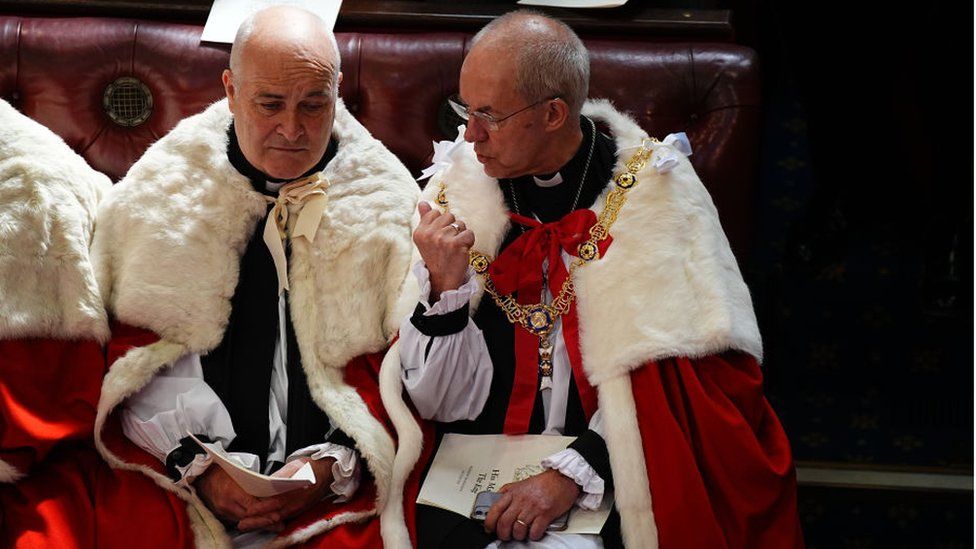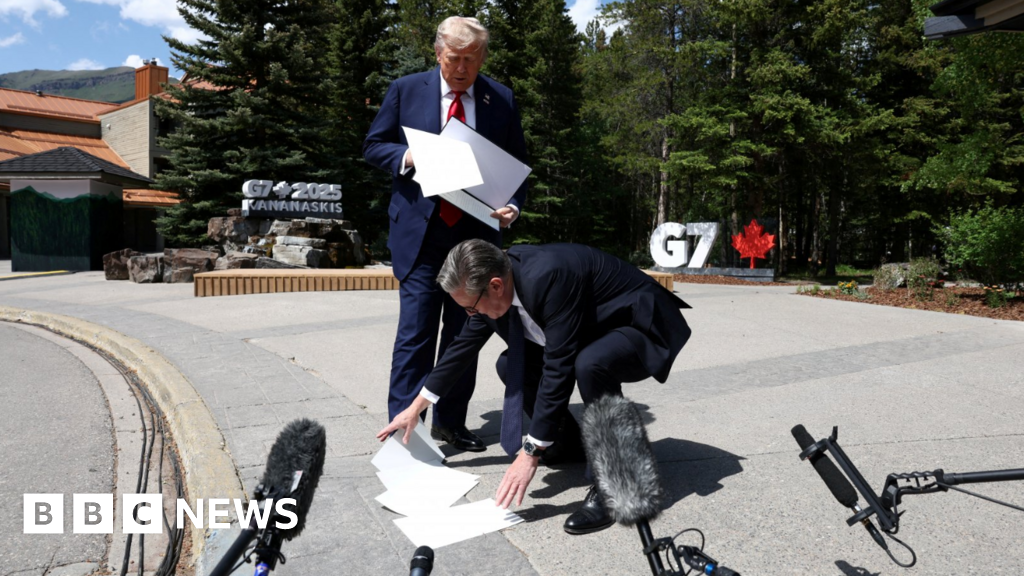ARTICLE AD BOX
 Image source, Getty Images
Image source, Getty Images
By Tom Edgington & Jennifer Clarke
BBC News
A law to reform the House of Lords is being introduced by the Labour government.
The bill will remove the remaining 92 hereditary peers, whose presence in the Lords is described as "outdated and indefensible".
Prime Minister Sir Keir Starmer previously pledged to abolish the parliamentary chamber in its present form altogether.
What is the House of Lords and how do people join it?
The House of Lords, external is part of the UK Parliament.
Also known as the Upper Chamber, it is independent from the House of Commons, external - where 650 Members of Parliament (MPs) debate and vote on new laws.
Members of the Lords are called "peers". Like MPs, they scrutinise the work of government and recommend changes to proposed legislation.
Unlike MPs, however, peers are not elected.
While many have worked in politics - including some former MPs - others are experts in areas such as science or the arts.
There are three main ways, external to become a peer:
Appointment: Most peers are appointed by the monarch on the PM's advice. Nominations are vetted by the House of Lords Appointments Commission,, external but the PM ultimately decides who to put forward
Hereditary: These peers inherit their titles from a parent. Most hereditary peerages were abolished in 1999, external
Holding certain jobs: Some positions - such as being the Archbishop of York or Canterbury - entitle the holder to a seat in the Lords
The majority of peers are members of a particular political party, but there are also a number of Crossbenchers who have no party affiliation.
Most peers stay in the Lords for life - although some choose to retire.
Image source, Getty Images
Image caption,As at 4 September, there are 805 peers in the Lords
How does the government want to change the Lords?
The bill is designed to phase out the 92 remaining hereditary peers. Most were abolished in 1999 - under the previous Labour government - when the number was reduced from about 800, external.
About half of the hereditary peers still in the chamber are Conservatives. Most of the rest are independent Crossbenchers with a small number of Labour and Liberal Democrat peers.
Those peers affected would include:
Lord Attlee - grandson of former Labour prime minister Clement Attlee
The Duke of Wellington, whose great-great-great-grandfather defeated Napoleon at Waterloo in 1815
Lord Ravensdale, the great-grandson of Oswald Mosley who founded the British Union of Fascists in 1932
Viscount Stansgate, whose father Tony Benn renounced his peerage to sit in the Commons
Conservative hereditary peer Lord Strathclyde called the legislation a "high-handed, shoddy political act". He argued that the government should instead focus on removing peers who rarely took part in debates.
Reforming the House of Lords was a key part of Labour's manifesto - the document which set out the party's plans for government.
The manifesto also pledged to introduce a mandatory retirement age of 80 for members of the Lords, but that will happen later, after a consultation.
Sir Keir previously described the second chamber as "undemocratic" and "indefensible".
In opposition, Labour had said it favoured replacing the Lords with an elected second chamber called the Assembly of the Nations and Regions, external - but that will not happen before the next election.
What does the House of Lords do?
The House of Lords is independent of the House of Commons, but carries out similar roles.
For example, it examines and votes on legislation, questions government decisions and investigates matters of public policy.
The chamber does not have a fixed number of seats, and its size fluctuates as members leave and join.
As at 4 September, there are 805 peers, external, making the House of Lords the second largest parliamentary chamber in the world. Only China's National People's Congress is bigger.
Like the Commons, the Lords has a Speaker, external. The post was established in 2006, and the current Speaker, Lord McFall, was elected for a five-year term in 2021.
Image source, House of Commons
Image caption,The Lord Speaker, Lord McFall, sits on the woolsack, with the mace, the symbol of royal authority
The Lord Speaker chairs daily business in the chamber from his seat on the woolsack and, like the House of Commons Speaker, is expected to be politically impartial.
The monarch delivers the King's Speech from the throne of the House of Lords as part of the state opening of Parliament. The speech sets out the government's priorities for the coming year.
Image source, Getty Images
Image caption,Lady Usher of the Black Rod, Sarah Clarke, is the first woman to hold the post
One of the most senior officers in the House of Lords, Black Rod - currently Sarah Clarke, external - plays a key role in traditional ceremonies such as the state opening of Parliament and selection of the Commons Speaker.
What are peers paid?
Most Lords are entitled to a £342 daily allowance, external for each sitting day they attend - although they can choose not to claim it.
Some receive a salary instead, including the Lord Speaker who receives £106,363.
Government ministers in the Lords are entitled to a ministerial salary, external, which ranges from £66,884 to £106,363, although the actual amount claimed is slightly below these figures.
Salaried peers can not claim the daily allowance.
Image source, Getty Images
Image caption,Labour had previously said it favoured abolishing the House of Lords altogether
How do other countries' upper chambers work?
US: The US Senate has 100 elected members, external who serve six-year terms. A third of the membership is elected every two years
Canada: The Canadian Senate has 105 members, external and a mandatory retirement age of 75. Like the Lords, its members are appointed on the recommendation of the PM
France: The French Senate has 348 elected members, external who serve six-year terms. Half are up for election every three years

 9 months ago
45
9 months ago
45








 English (US) ·
English (US) ·